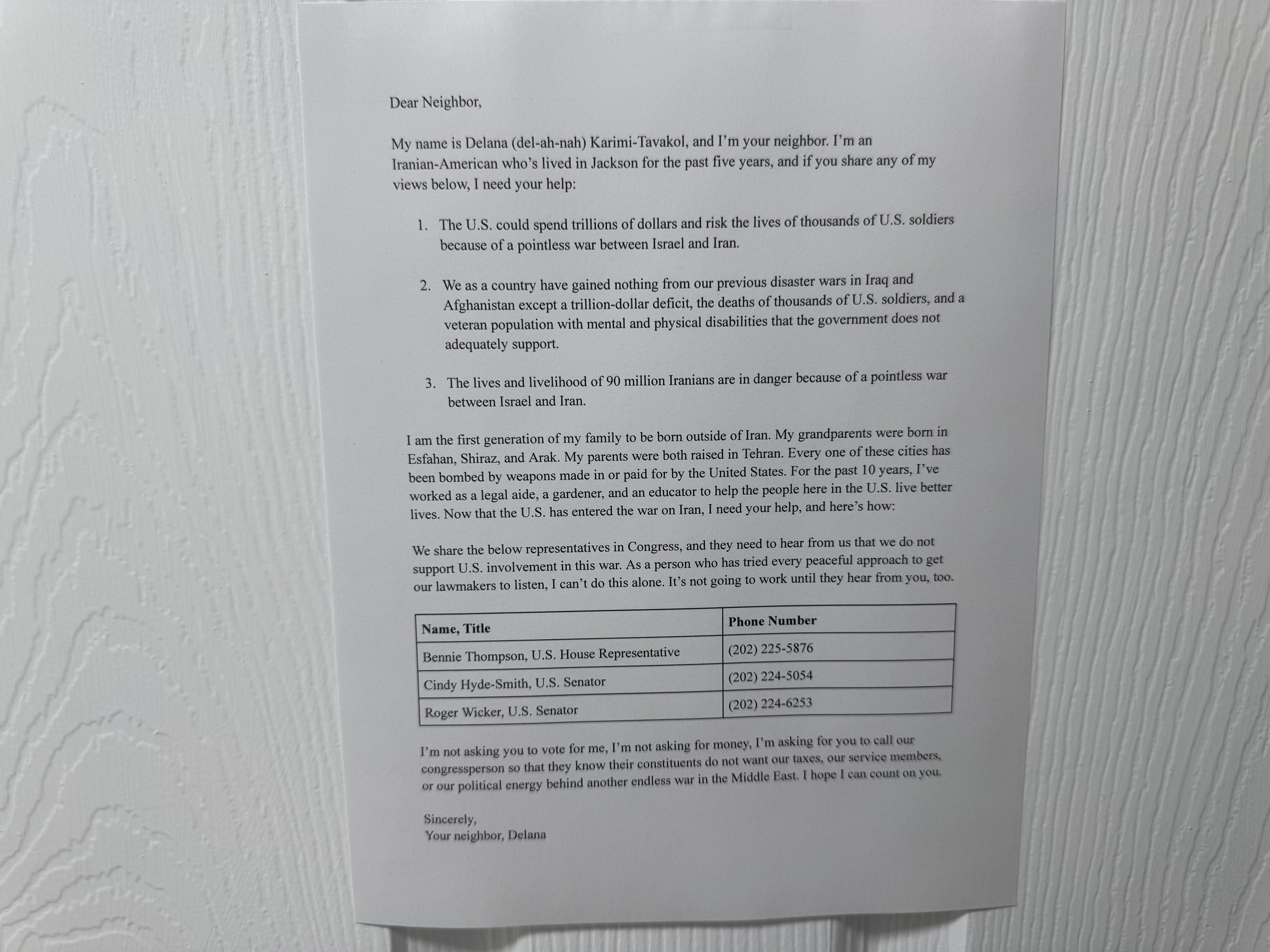Republican members of Mississippi’s congressional delegation have largely been supportive of the American strikes. Republican Senator Roger Wicker, who is also the chairman of the Senate Armed Forces committee, tweeted earlier this week that President Trump “made a deliberate and correct decision” to eliminate the “existential threat” Iran poses.
Benjamin Tkach is a political science professor at Mississippi State University who spoke with MPB News representing his personal views and not those of the university.
“What nuclear latency is, is where Iran was. And it's this idea that you have some enrichment and reprocessing capacity, but you haven't developed a weapon. And you may not even intentionally be pursuing a weapon,” he said. Tkach says that Iran’s nuclear capabilities seem to have surpassed the baseline needed for civilian purposes.
“Building nuclear weapons, the key feature, the hardest thing is getting the nuclear material. If you can produce the nuclear materials, producing a weapon, I wouldn't say it's easy, but it's very doable for a decent military industrial complex. Iran can do it,” he said.
Tkach says Senator Wicker is in a unique position as chairman of the Senate Armed Forces Committee, and may have been privy to information about Iran’s capabilities that were not released to the public.
“If we think about the role that Iran has played in the region, really for the last two decades, they fund Houthis, they fund Hezbollah,” he said. “They have used those two organizations as extensive proxies of their foreign policy to conduct attacks all over the Middle East, to attack shipping in the Red Sea. So, in terms of a response to Israeli calls for help, that's another thing that we'll start to learn more as this stuff unfolds.”
On X, Mississippi’s sole Democratic congressman, Bennie Thompson, called the U.S. strikes an “illegal act of war,” arguing the Trump administration acted without Congressional approval. Thompson later released a statement via X arguing that the U.S. is at an increased threat level because of the strikes.
Graham Pitts teaches international studies at the University of Mississippi.
“Benny Thompson has taken Trump to task for not seeking and gaining congressional authorization for the use of force before attacking Iran and he's been an independent voice on this issue,” he said. “But I think it's worth stating that the establishment in both parties has consistently supported giving Israel a blank check and supporting Israel in its wars against its neighbors. So I think what we see fundamentally is a continuation of Joe Biden's policy in that regard. The partisan divide here can be misleading.”
Republican Senator Cindy Hyde Smith tweeted that “President Trump made the right decision to eliminate the very real threat posed by an Iran armed with nuclear weapons.” Pitts offers a different assessment.
“Despite what U.S. Senator Cindy Hyde-Smith has said, that the very real threat posed by Iran has been eliminated, the nuclear threat that is, the statement’s misleading in a couple of regards,” he said. “Iran does not have nuclear weapons, according to our intelligence services. But the attacks that happened didn't prevent Iran from enriching enough uranium to make a nuclear weapon. In fact, because Donald Trump telegraphed the fact that the United States intended to attack Iran, Iran was able to remove uranium from those facilities.”
Iran and Israel entered into a ceasefire Tuesday, but Pitts says the conflict may not be over.
“Iran will bide its time,” he said. “Hezbollah will bide its time. Ansar Allah will bide its time. And they'll strike back, like Hezbollah often says, at a moment in time and a place of their choosing. And that's impossible to predict.”
President Trump accused both Iran and Israel of violating the ceasefire shortly after it was announced, but it seems to be holding. A development Pitts believes the majority of the global community supports.
“Iranians, Israelis, people in the United States, people in Lebanon, and all of the countries involved, big majorities, want to end these wars,” he said. “The war in Gaza, the war in Palestine, had become very unpopular in Israel, as it had been globally. And so one thing that the Prime Minister Netanyahu was doing, with the surprise attack on Iran, was kind of distracting the Israeli public from a very unpopular war in Gaza to something that had maybe more broad-based support. But the fact remains that the sense that the safety and security of human beings are threatened by an expanded conflict is shared globally and very acutely in these places.”
An early intelligence report suggests the U.S. strikes set Iran’s nuclear program back months, but did not completely destroy it. The Trump administration has been critical of this analysis.





